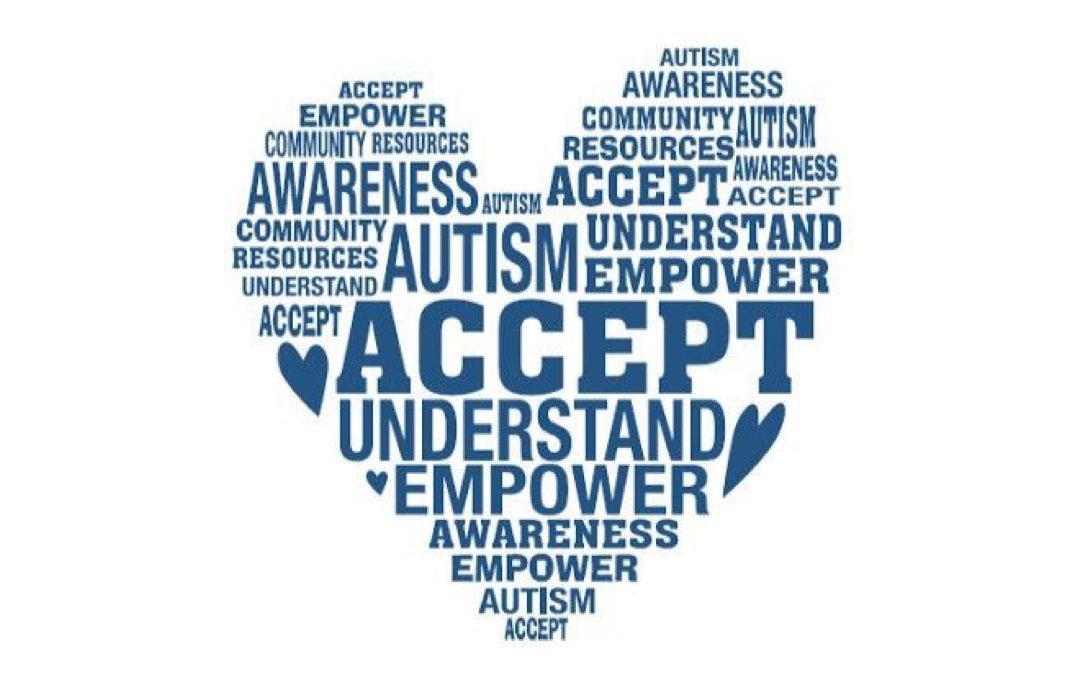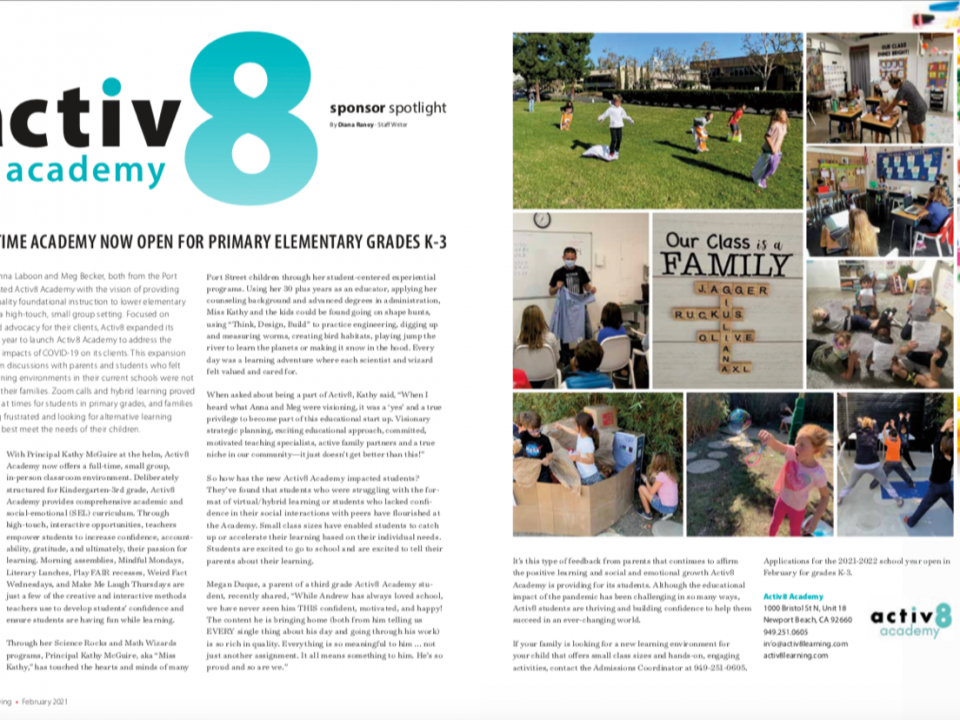What does it feel like to have Autism?

Summer is a Great Time for Learning
July 18, 2019
Mindfulness for Children
July 26, 2019Written by Activ8 Learning Center Owner and Advocate, Anna Laboon
The CDC cites that 1 in 59 children is now being diagnosed with autism spectrum disorder (ASD)—so that means that if you’re not a parent, you may have a niece or nephew, grandchild, neighbor, child’s classmate or family friend with that diagnosis. There is hardly a person in our community who doesn’t know at least one child on the autism spectrum. By taking a pro-active role this month, each one of us can take steps to better understand the needs of people with autism—and the parents raising them. Most people do not understand what autism is, how it feels to be autistic, nor how to interact with members of the community who have been diagnosed with autism. I chose to write this article because I want to help build autism awareness in our community. I am a mother of a child on the autism spectrum who understands the daily struggles of raising a child with ASD.
Autism is a mental condition present from early childhood which is characterized by difficulties in social interaction, forming relationships, verbal and nonverbal communication, and repetitive behavior. Children with ASD develop at a different rate and don’t necessarily develop skills in the same order as typically developing children. Children and adults on the autistic spectrum react differently than the average person in everyday situations. People on the spectrum have difficulty with transition and being out of routine. Children on the spectrum also have narrowed interests and need to be introduced to new toys and objects consistently. It can be difficult for someone with ASD to communicate, especially with topics that they are uninterested in. Many people on the spectrum need to be reminded to show interest in what other people want to talk about, to be explained the difference between figurative and literal language, and reminded to make eye contact. Children with ASD can find it hard to pay attention to others, communicate, understand other perspectives, and see the big picture. These challenges affect learning and development.

Although children and adults on the spectrum do not always react to certain situations in the same manner as others, there are ways to help those with ASD. When you understand your child’s areas of challenge, you can find the best ways to help him learn. Children with autism are visual learners and significantly benefit by learning through pictures, modeling, and repetition. For example, pictures can be used to teach steps or routines. They can also be used to illustrate a child’s routine throughout the day. Knowing what is going to happen next and having a daily routine helps those on the spectrum relieve stress and anxiety. Social deficits can be alleviated by modeling social stories and taking turns in conversation. This will help strengthen social skills and overall communication. Often times those diagnosed with ASD have a sensory processing disorder which is a condition where the brain has trouble receiving and responding to information that comes through the senses. Applying deep pressure such as squeezing, massaging or hugging is an effective method to calm children with sensory processing.
Here are some ways that you can support parents of autistic children during Autism Awareness Month and throughout the year. If you are on the PTA, a committee at your house of worship or in leadership in your neighborhood/township, consider the needs of children with autism when you are planning events. Adding a quiet room to a loud concert or carnival can help children who experience sensory overwhelm to come participate in your event by allowing them to have a place to decompress. Some children with autism struggle to wait in lines—create ways for parents to pre-register and pay in advance for events that include long registration lines.
If your child is inviting the whole class to a birthday party, make sure to include autistic classmates who are fully or partially included in the class with or without supports. Reach out and email or text the parent and let them know that you’re excited for the child to come—and ask about whether there are supports that would help the child to participate. So many of us parents experience isolation and sadness on behalf of our kids that they aren’t included in school/social events. This kind of invite shouldn’t be news—it should be the norm and you can help to make it that way.
You may not know how to support a friend, sibling, co-worker or neighbor who is raising a child with autism. You may avoid the parent you see at school drop-off whose child seems different from your own. I get it—I was that mom before receiving my son’s diagnosis. It’s okay to not know what to say…reach out and let that parent know that you’re there as a listening ear. Just knowing that there are people who are there for you is enormously helpful as a parent with autism.
There are so many amazing online resources and several local programs which support families affected by autism. For more information on where to find these resources or how to help a family member or friend with autism, feel free to contact our center and speak with a member of our team.




